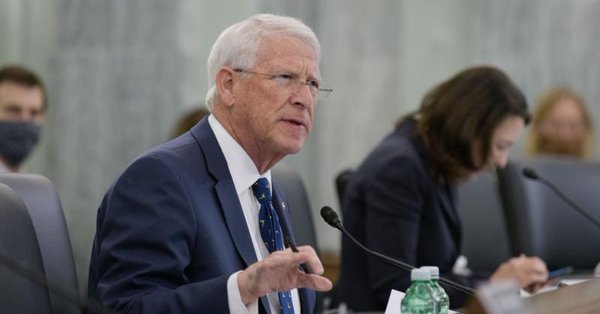Fourth compromise proposal on healthcare reform sent to House
Senate Medicaid Chairman Kevin Blackwell (R-Southaven) has delivered another signed compromise proposal to the House on healthcare reform.
The newest proposal is a version of the Senate compromise delivered to the House on Friday, April 26. The House objected to the requirement that the Attorney General appeal to the federal courts if CMS denied the waiver. The new compromise would require the state, if the waiver was denied, to reapply only if another state’s work requirement was approved by CMS instead of contesting through the courts.
The newest proposal would also move the work requirement—which already contains significant exceptions for students, parents of children who are not school-age, and others—to 100 hours a month from 120 hours a month.
“We have provided three conference reports over the past three days. The House got back to us this afternoon countering with, essentially, their original bill,” Blackwell said. “We now submit a fourth report, which provides a path to implementation and is reflective of an attempt to compromise between the two chambers.”
All four signed Senate conference reports will be published online for the public to review: https://www.legislature.ms.gov/calendars-and-schedules/senate-committee-agenda/.
“A compromise requires concessions between the chambers. The Senate requires a real work requirement, but our plan now covers individuals up to 138 percent of the federal poverty level,” Lt. Governor Delbert Hosemann said. “This is a good step which would cover thousands more Mississippians than our Medicaid program covers now—and we hope the House will sign on to give us the opportunity to vote on the bill.”
The three previous proposals included the following:
- Original Senate proposal: requires the Mississippi Division of Medicaid to apply for a waiver to cover people making up to 100 percent of the federal poverty level (less than $31,200 for a family of four). The plan would not move the 140,000 people between 100-138 percent of the federal poverty level who are currently on commercial plans on the federal health insurance exchange to Medicaid plans—and the state would receive no federal match money for this population. The waiver, if approved by CMS, would allow the state to draw down 77 percent in federal match money and would primarily be paid for through an assessment on managed care organizations. The proposal includes a work requirement.
- Senate compromise proposal: requires the Mississippi Division of Medicaid to apply for a waiver to cover people making less than 100 percent of the federal poverty level to be covered by a managed care organization. Medicaid would also cover people between 100-138 percent of the federal poverty level through the federal health insurance exchange (138 percent of the federal poverty level is less than $43,056 for a family of four). The waiver, if approved by CMS, would allow the state to draw down 90 percent in federal match money, but would also require the state to pay 10 percent of the cost of coverage/the commercial plans through 138 percent of the federal poverty level. The program would be largely paid for through an assessment on managed care organizations and an increased insurance premium tax on exchange plans provided to the eligible Medicaid beneficiaries. The proposal includes a work requirement but would require the Attorney General to appeal to the federal court if CMS denies the waiver.
- Second Senate compromise proposal: a variation of the first compromise proposal, but instead of appealing to the federal courts upon denial, the Division would be required to reapply only if another state’s work requirement was approved by CMS.
The House and Senate also signed a placeholder bill updating the Medicaid statutes (commonly known as the “Medicaid tech bill”). The legislation as drafted by the Senate it easier for children who are severely disabled to receive coverage; increase reimbursement rates for physicians and certain services, including services for patients with autism; include new areas of coverage, like glucose monitoring; and preserve the changes made last year to the hospital tax, which allows for additional revenue for hospitals.
The signed conference reports may be reviewed by clicking here.






